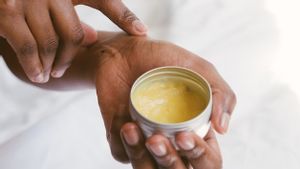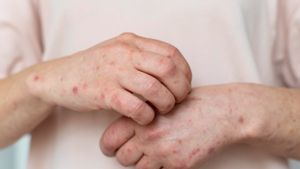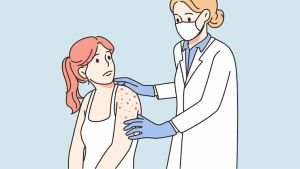YOGYAKARTA - Equilibration of microbiomes in the intestines, turns out to be related to a person's overall health. Not only at the layout of the digestive system which if disturbed causes constipation and diarrhea, but microbiomes are also associated with mental health. In recent reviews, gut microbiomes are related to the development of atopic dermatitis experienced by 15-30 percent of children and 10 percent of adults worldwide.
Simply put, what happens to the intestines and microbiomes that live in them, can determine what happens to the skin. Microbiomes, reported Medical News Today, Thursday, June 8, are a collection of bacteria, yeast, and living organisms. They play an important role in overall health, including immunity and allergic reactions.
A 2021 study shows that changes in microbiomes cause atopic dermatitis. The skin is home to trillions of living microscopic organisms. Trillions of more than bacteria, yeast, fungi, and other organisms live elsewhere in the body, especially in the digestive system.
Usus and skin interact in a complex way, and health problems affecting one can affect the other. The researchers call this interaction network an intestinal axis. This study shows that people with skin inflammation, including atopic dermatitis, acne, eczema, and psoriasis, often have unbalanced microbiomes.
Changes in the composition of microbiomes are called dybiosis, which is related to changes in the immune response which can cause the development of skin diseases. Meanwhile, skin problems such as atopic dermatitis can feel itching, and respect the skin can damage its natural protectors. This can interfere with the immune response and change the body's microbial environment.
SEE ALSO:
Researchers believe that changing the composition of microbes in the intestines can improve skin conditions such as atopic dermatitis. Such as eating probiotic foods that improve the health of the intestines. Although researchers have not found a balanced composition of intestinal microbiomes that can cope with atopic dermatitis, probiotics have a positive effect on people with atopic dermatitis.
Experts provide tips on developing healthier gut microbiomes. Among them include eating more fiber (cannicals, vegetables, fruit, seeds, and nuts), fermented foods (yoghurt, tempeh, kombucha, airy, and sauerkraut), and managing stress.
The English, Chinese, Japanese, Arabic, and French versions are automatically generated by the AI. So there may still be inaccuracies in translating, please always see Indonesian as our main language. (system supported by DigitalSiber.id)

















